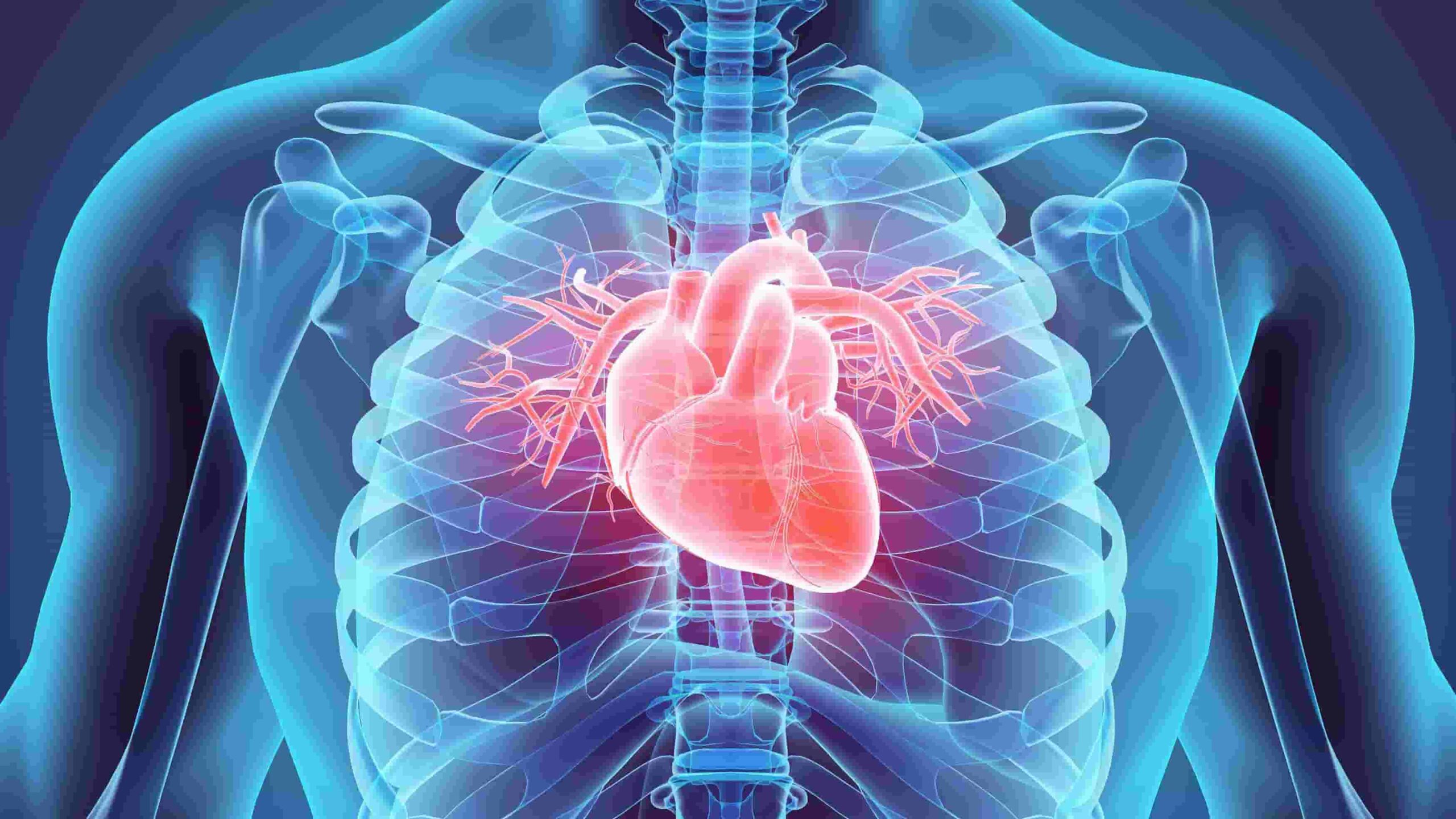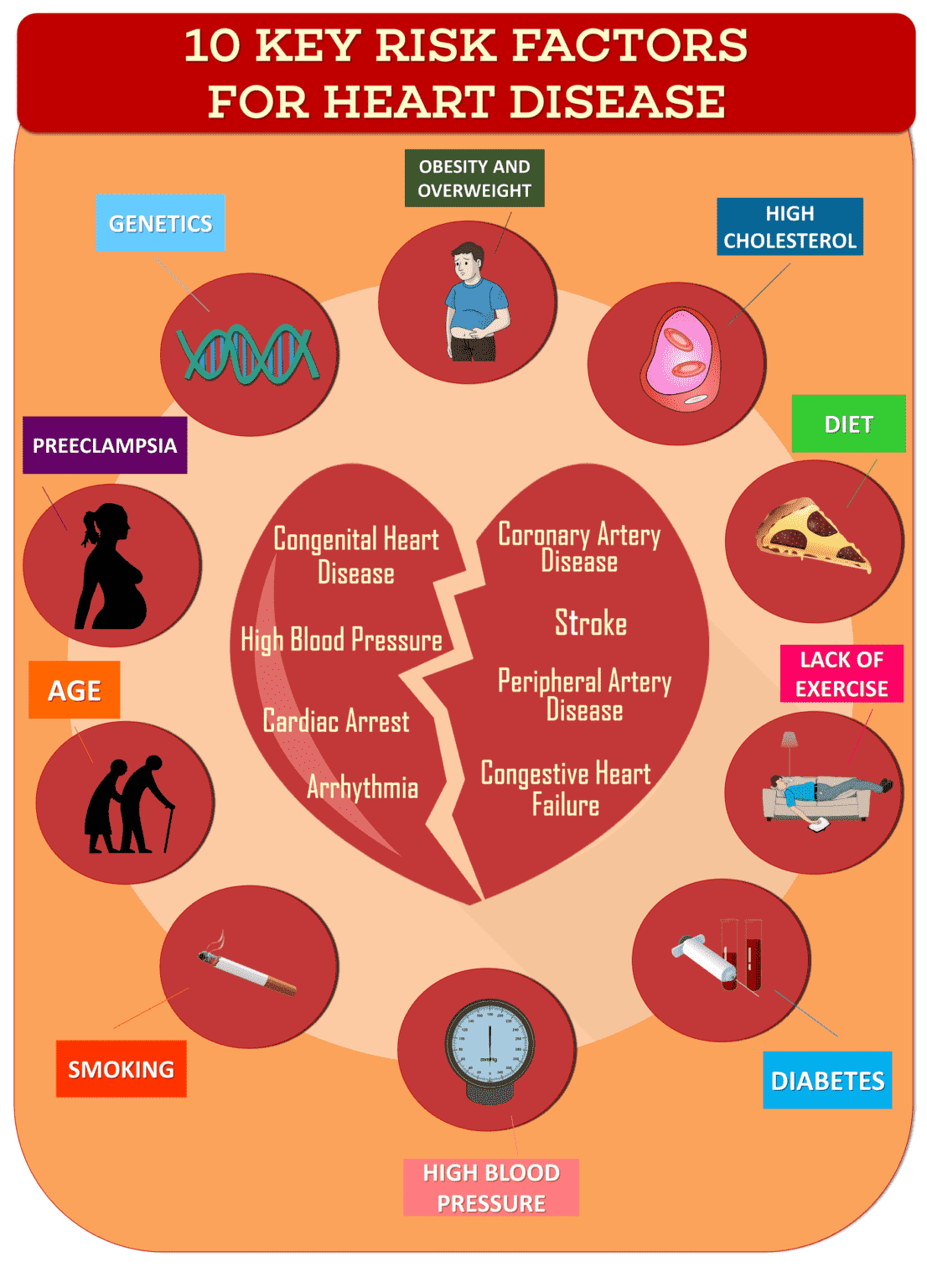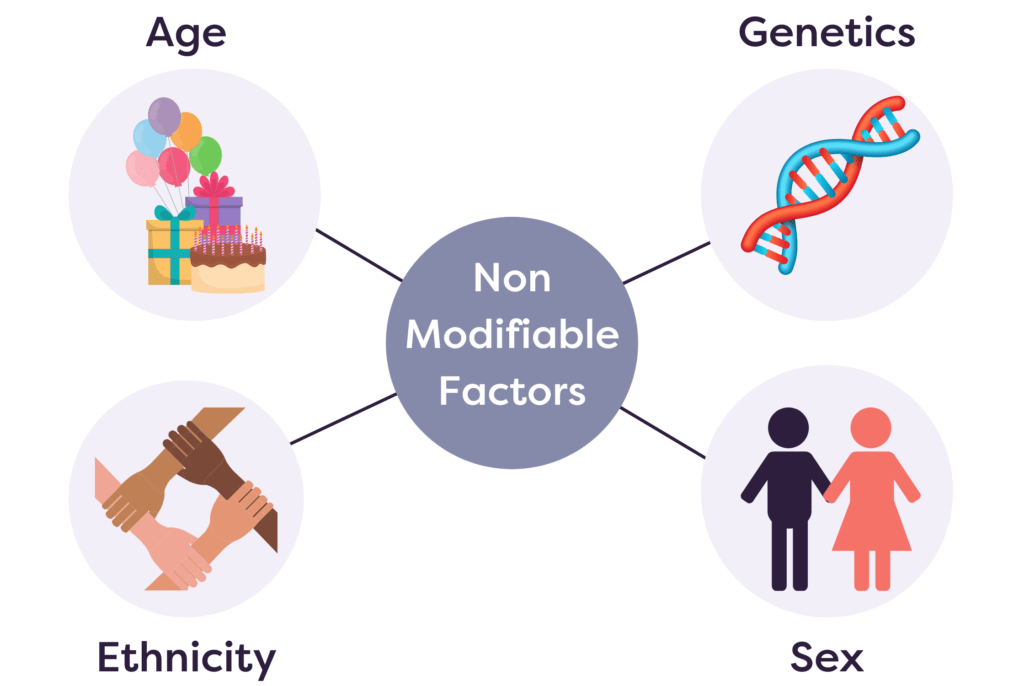CARDIOVASCULAR
Almost about half of all Americans (47% approx.) are suffering from at least 1 of 3 key risk factors for heart disease. These mainly include high blood pressure, high cholesterol, and smoking. The risk factors increase the chances of heart diseases such as several health conditions, your lifestyle, and your age and family history.
Some of these risk factors are not under our control such as age and family history of heart diseases. However, it is important to take steps to lower your risk by monitoring the factors you can control.
Factors increasing the risk of cardiovascular disease are specifically your habits, behaviors, or circumstances. Several conditions, such as lack of exercise, unhealthy eating, and smoking, diabetes, age, and family history also increase your risk of developing cardiovascular disease.

WHAT IS A CARDIOVASCULAR DISEASE?
Cardiovascular disease is an umbrella term that describes conditions affecting the heart and circulatory system. These majorly include coronary heart disease, stroke, heart attack, and aortic disease.
Cardiovascular disease is not the same as heart disease. Heart disease is a cluster of conditions affecting the structure of the heart and its functioning. It would be correct to say that all heart diseases are cardiovascular diseases. But, not all cardiovascular diseases are heart diseases.
Cardiovascular disease affects the heart or blood vessels including veins and arteries. Several factors affect the heart including socio-economic, behavioral, and environmental factors. Other factors such as high blood pressure, unhealthy diet, high cholesterol, diabetes, air pollution, obesity, tobacco, kidney disease, physical inactivity, alcohol abuse, and stress increase the risk of heart problems. In some cases, family history, ethnic background, sex, and age can also pose a high risk of cardiovascular disease.

WHAT ARE TYPES OF CARDIOVASCULAR DISEASE?
Cardiovascular disease includes several different types of conditions. Some of these might develop at the same time or lead to other conditions or diseases within the group. The major cardiovascular disease includes:
Heart: Coronary heart disease or coronary artery disease or ischemic heart disease refers to heart problems caused by narrowing of coronary arteries that supply blood to the heart muscle. The initial sign of coronary heart disease is a heart attack.
Heart Attack: Also known as myocardial infarction is a result of a blood clot that disrupts the flow of blood to the heart. This interferes with the supply of oxygen and nutrients resulting in damage to the heart muscle.
Stroke: This occurs due to an interrupted supply of blood to the brain. This causes the brain to lose its vital supply of oxygen and nutrients. Stroke could be caused by a blood clot in the brain artery or damage to a blood vessel in the brain bursts leading to internal bleeding and damaging the brain tissue.
Other conditions: Various conditions are associated with cardiovascular disease such as-
- Arrhythmia
- Aortic disease
- Cardiomyopathies
- Congenital heart disease.
- Deep vein thrombosis and pulmonary embolism
- Heart failure
- Heart valve disease
- Pericardial disease (pericarditis)
- Rheumatic heart disease
- Vascular disease
- Peripheral vascular disease
- Cerebrovascular disease
- Willebrand Disease
WHAT ARE THE RISK FACTORS OF CARDIOVASCULAR DISEASE?
The risk factors causing cardiovascular disease can be split into two categories. Focusing on one or more risk factors decreases your risk of developing cardiovascular disease.
Non-modifiable Risk Factors
These cannot be changed. These include a person’s age, ethnicity, and family history are among these factors.
- Family History: Cardiovascular disease usually runs in families. Having a family history of high blood pressure or hypertension, high cholesterol and type 2 diabetes increase your chances of developing cardiovascular disease. Incorporating a healthy lifestyle is recommended to help reduce the risk of cardiovascular disease in those with a genetic tendency to the condition.
- Age: Older people are at a higher risk of developing cardiovascular disease. The process of aging cannot be changed but can be reduced with general lifestyle changes.
- Ethnicity: As per statistics, people of South Asian, African, or Caribbean origin have a greater risk of developing cardiovascular disease. The reason behind ethnicity is difficult to define. Leading a healthy lifestyle is key to prevent cardiovascular disease.
- Sex: Cardiovascular disease has been seen as a man’s disease. The risk of cardiovascular disease in women has been underestimated, and symptoms may go unrecognized, complicating diagnosis and treatment. Women tend to develop cardiovascular disease at an older age due to hormonal changes after menopause.

Modifiable Risk Factors
These can be reduced or controlled with altered behavior such as smoking, diet, and exercise. Certain lifestyle changes can lower your risk of developing cardiovascular disease.
- Cholesterol: Cholesterol is a wax-like fatty substance produced by the liver or present in some foods. Blood cholesterol is mainly of 2 types: LDL (low-density lipoprotein) cholesterol that is considered to be “bad” cholesterol. This can cause plaque accumulation in your arteries. The second is HDL (high-density lipoprotein) cholesterol that is considered to be “good” cholesterol. Higher levels of HDL provide some protection against heart disease. Usually, there are no signs and symptoms of high blood cholesterol. Balance diet with regular exercise and quitting smoking helps to reduce LDL cholesterol levels. Very high levels of LDL cholesterol can be controlled with medications such as statins.
- High Blood Pressure: High blood pressure or hypertension, contributes to the high-risk factor of cardiovascular disease. It leads to various cardiovascular diseases including heart failure, stroke, and heart attack. High blood pressure is often caused if you are overweight, have physical inactivity, have a high intake of salt or alcohol, or have a family history of cardiovascular disorder. However, in some cases, there may be no apparent cause.
- Diabetes: Diabetes is a condition that causes high levels of glucose in the blood, which can damage the artery walls. This is likely to cause the buildup of fatty deposits known as atheroma. Deposition of these fatty deposits in the coronary arteries can lead to coronary heart disease and heart attack.
- Smoking: Tobacco increases the chance of developing cardiovascular disease. Smoking causes damage and narrows the arteries that commonly lead to angina pectoris and heart attack. Angina pectoris is pain or discomfort in the center of the chest, caused by the heart muscle not getting enough blood.
- Obesity: Excess body fat leads to obesity. This is linked to higher levels of “bad” cholesterol and triglyceride and lower “good” cholesterol levels. Obesity can lead to various diseases such as high blood pressure and diabetes as well as heart disease.
- Diet: An unhealthy diet is a key risk factor for cardiovascular disease. A balanced diet containing plenty of fruits and vegetables, complex carbohydrates, and protein lowers the risk of cardiovascular disease. You should aim to avoid excess fats, salts, and sugars.
- Alcohol: High amount of alcohol intake can raise blood pressure levels and the risk for heart disease. Alcohol increases levels of triglycerides that can increase the risk for heart disease.
OUTLOOK
It is never too late or too early to start focusing on heart health. Some risk factors can be controlled, while others cannot be controlled. By eliminating risk factors that you can change and by properly managing those that you cannot control greatly reduce your risk of heart disease.
If you or anyone you know is suffering from heart problems, our expert providers at Specialty Care Clinics will take care of your health and help you recover.
Call us on (469) 545-9983 to book an appointment with our specialists.
